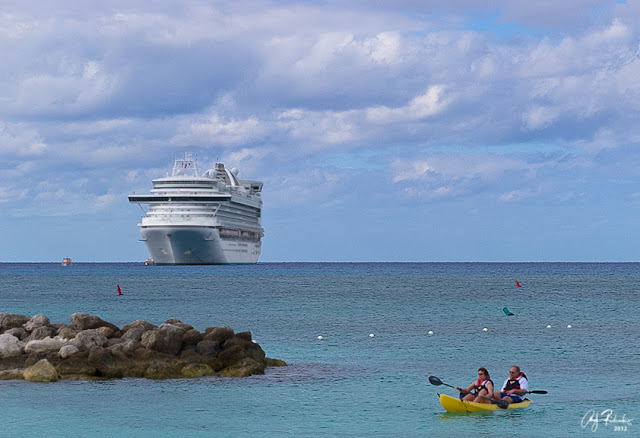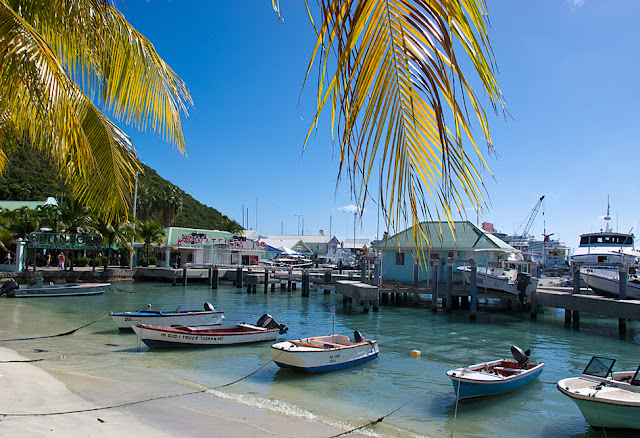 |
| Ruby Princess - Princess Cay - Eleuthera, Bahamas Copyright Andy Richards 2012 - All Rights Reserved |
 |
| The Ruby Princess - Caribbean 2012 A very different "vibe" than Alaska - complete with "Bob Marley/Jimmy Buffet style music around the pool Copyright Andy Richards 2012 - All Rights Reserved |
AS IN the Alaska trip, my brother-in-law was also involved with our second cruise and its planning. He had been on a couple prior cruises over the years. They had all been in the Caribbean. He was definitely in for the Caribbean. On the first go-round, I had insisted that I would go, but only if I could choose the cruise. They were good with that and I chose Alaska. We all had a great time. But this time? Well they say "what goes around comes around." This time: his turn to choose. He made a short exercise of it. We were going to the Caribbean.
 |
| Ruby Princess - Caribbean 2012 There was no sunbathing or pool parties in Alaska Copyright Andy Richards 2012 - All Rights Reserved |
WE HAD thoroughly enjoyed our experience with Princess, and we were both already accumulating "status." So it was an easy choice to go on Princess again. The itinerary and timing that fit best for us meant our cruise would be on The Ruby Princess. Two years newer (2008) than our Alaska ship, The Diamond Princess (2006). Both are in Princess' Grand Class and thus essentially similar. The Ruby Princess does have one additional deck, however.
A CARIBBEAN cruise is almost everything opposite of an Alaska cruise. Instead of cool, overcast conditions, it is warm and sunny. Instead of a more "cultural" approach, it is beach party time (that is not to say that there are no cultural opportunities in the Caribbean - as we would later learn). For northerners (we lived in Michigan at the time and my brother-in-law lived in Virginia - still a cold weather climate during the winter months), the Caribbean in winter time is a little slice of heaven. Albeit short-lived, we began to look forward to our southern trips as a time to thaw out, get some color from the sun, drink the "boat drinks" Jimmy Buffet sang about, and just recharge the batteries. As you can see from the photo above, there is one huge difference between our first and second cruises. The Caribbean means sun and warm temperatures. I can assure you there were no sun-worshippers in bathing suits lounging around the pool aboard the Diamond Princess in Alaska. 😆
 |
| Princess Cay; Eleuthera, Bahamas Copyright Andy Richards 2012 - All Rights Reserved |
PRINCESS PIONEERED the idea of owning its own slice of paradise in the form of a day-visit tropical beach owned by the cruise line. In 1981 the cruise line acquired a beach property on Palm Island in the Grenadines and began calling there for day stops on its Caribbean itineraries. In 1986, Palm Island was replaced by "Princess Bay," at Saline Bay on the Caribbean island of Mayreau (part of St. Vincent and the Grenadines). Then, in 1991, the company acquired a large part of the northern tip of the island of Eleuthera, Bahamas., and opened its current (and only) exclusive beach destination: Princess Cay. Owned by Carnival Holding, Inc., it is shared by sister lines: Holland America and Carnival. I think that the location (technically The Bahamas are not part of "the Caribbean") was a major consideration, being much closer to all three cruise lines' U.S. ports. We stopped there on our second day (first was "at sea") out of Ft. Lauderdale and enjoyed a beautiful day on the white sandy beach. The opening image showing our Ruby Princess anchored out (the Cay is a "tendered" stop) in crystal blue waters. The cruise ship puts on a major "barbeque" style food setup. We rented one of the colorful little "cabana cabins" (ours is pictured) for the day, giving us a place to change and to get out of the sun (or rain, if necessary). Pretty nice beach day.
 |
| St. Maarten - On our first visit I counted 7 cruise ships in the port Copyright Andy Richards 2012 - All Rights Reserved |
THEN THE cruise began "in earnest." Our next stop was the island nation of Sint Maarten / St. Martin. The island is basically bisected north and south, with the southern part being Dutch territory and the northern part, French. The cruise ships all dock in Phillipsburg on the Dutch side because there is a deepwater port there which can accomodate multiple ships. For a number of reasons, we did not do a very good job of planning this cruise. We are not generally beach-goers, or water-adventure (like snorkeling) seekers. 2012 had also been a turbulent year for us (more for my wife and her brother than me). My mother-in-law, a formerly independent and self-sufficient single woman, had taken a turn in her health. No longer able to live independently, they shared the responsibility of caring for her. That year, they decided that it would be best for all to move her from her familiar Virginia, to Michigan, where my wife and I lived. Her brother was in the process of changing jobs and would eventually move to Florida. Only a day or two before we were scheduled to fly to Ft. Lauderdale and board our ship, she took a turn for the worse, and was hospitalized. Then on the day of our sceduled flight, she passed. Tumultous. My brother-in-law and his girlfriend were already at the hotel we were going to meet at in Ft. Lauderdale. I remember speaking to him that night by phone as he was walking on the beach, reflecting on things. The first thought every one of us had was that we would abandon the cruise. But we quickly realized there was no jonger any urgency. They were her only children. She wasn't at "home," so a service wasn't imminently necessary. There was time to plan. We had both paid for the cruise and were beyond any normal cancellation deadline. And we knew in our hearts that she would have wanted us to go. We did and I think all were glad we did. Packing was a blur, as was getting to the port on time for the sail-away. But we made it.
 |
| The center of Phillipsburg, Sint Maarten - Courthouse in the background Copyright Andy Richards 2012 - All Rights Reserved |
WE GOT off the ship in St. Maarten, bought some jewelry, and then rode the water taxi across the bay to the middle of Phillipsburg. My brother in law had booked some kind of excursion for them, so my wife and I walked around the "downtown" area of Phillipsburg and did some "window shopping." The first thing we learned about the Caribbean is that it mostly has a very laid back vibe contrasted with the "hard sell" approach the tourist vendors take in most cases). Just off the ship the water taxi that took you across the bay to the main dock in the downtown section of Philipsburg. It was maybe a 5 minute ride. But in that time, We were warmly greeted, offered a (very reasonably priced) beer, and whisked across the gorgeous bay to the dock.
 |
| St. Maarten Water Taxi Copyright Andy Richards 2012 - All Rights Reserved |
I LEARNED that in Phillipsburg you may walk around the town (and the beaches) with an open alcoholic container. "No worries, mon." 😁 So, once in town, I did just that. We window shopped and successfuly avoided buying the proverbial T-shirt. Evenually, we found our way to a shady little spot on a very small beach adjacent to a small marina where it looks like some local fishermen beached their boats, found a sandwich and a beer, and just relaxed. It was a fun and memorable day. Aside from Canada, this was my first time in a foreign country and my first time south of Orlando. It was a memorable day.
 |
| A quiet corner of the beach - St. Maarten, Dutch West Indies Copyright Andy Richards 2012 - All Rights Reserved |
SOON ENOUGH it was time to head back for the ship. It was nice to head back, get cleaned up, and have a cocktail before dinner at our assigned table for 4. I didn't know it at the time, but we would be back to St. Maarten several times over the next few years. I always enjoy it and have often though it would be my first choice of a place to stay for an extended period in the Caribbean.
OUR SHIP had a later departure that day and we were able to observe a gorgeous sunset as we watched a "ghost of our future," the brand new Celebrity Reflection leave port and sail off into the sunset. Stay tuned, as it is coming up soon.
 |
| The Celebrity Reflection - St. Maarten, Dutch West Indies Copyright Andy Richards 2012 - All Rights Reserved |





















































